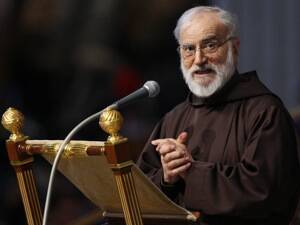The Roman Curia's headline-grabbing defense of Pope Benedict XVI's handling of the clerical sex abuse scandal has demonstrated that when it comes to Vatican communications, the pope is not a micromanager. Twice during Holy Week liturgies, the pope was caught unawares when his aides spoke passionately about the barrage of criticism the pontiff and other church leaders have faced in recent weeks on the sex abuse issue. One official compared the attacks on the church and the pope to "the most shameful aspects of anti-Semitism," while another said the church would survive the "current petty gossip." What Pope Benedict thought of these interventions was not clear. But in both cases, the remarks had the unintended effect of upstaging his own spiritual message about the meaning of Christ's Passion and Easter. From the outside, the Vatican's verbal rallying around the pope was viewed as an orchestrated campaign to counter his critics. If there was orchestration, however, it wasn't directed by the pope.
Vatican Defense Not Planned by Pope
Show Comments (
)
Comments are automatically closed two weeks after an article's initial publication. See our comments policy for more.
The latest from america
Do the social networks that Catholic influencers are forming online reflect the values of the Gospel or those of the platform?
Whenever I teach a seminar on T. S. Eliot’s work, I spend the first day of class on ‘Marina.’
The figures represent a huge increase in abortion within a decade, since in 2012 abortion ended 20.84% of conceptions—a fifth of all pregnancies.
Serving life by caring for others is “the supreme law” that comes before all of society’s rules, Pope Leo XIV said in his first Angelus address at the papal summer residence.








